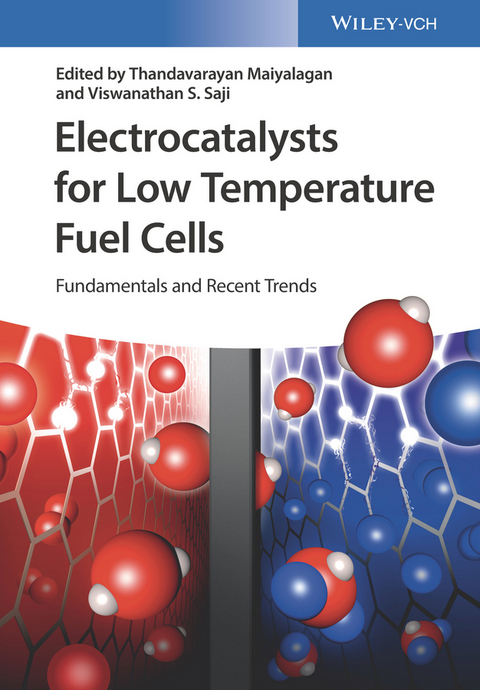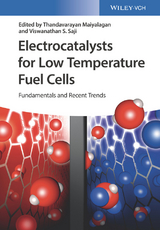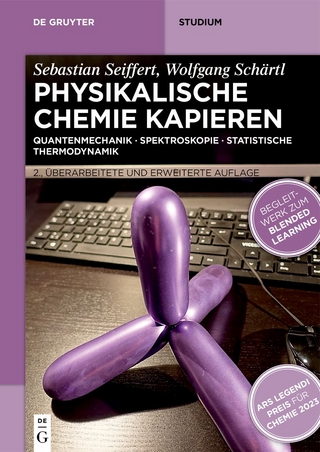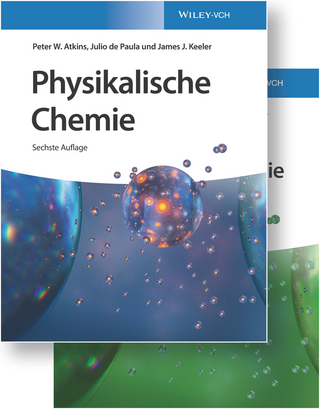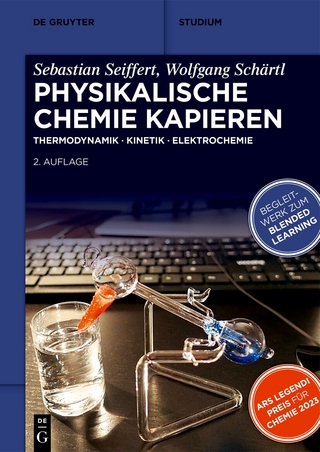Electrocatalysts for Low Temperature Fuel Cells
Wiley-VCH (Verlag)
978-3-527-34132-0 (ISBN)
- Titel ist leider vergriffen;
keine Neuauflage - Artikel merken
Thandavarayan Maiyalagan is currently an Associate Professor of the Department of Chemistry at SRM University, Kattankulathur, India. He received his Ph.D in Physical Chemistry from the Indian Institute of Technology, Madras, and completed postdoctoral programs at Newcastle University (UK), Nanyang Technological University (Singapore) and at the University of Texas, Austin (USA). His main research interests concern new materials and their electrochemical properties for energy conversion and storage devices, electrocatalysts, fuel cells and biosensors. He has delivered various key lectures in many national and international forums. He has published over 80 articles on the innovative design of the materials for energy conversion and storage. Viswanathan S. Saji received his Ph.D. (2003) degree from the University of Kerala, India and was a Research Associate at the Indian Institute of Technology, Bombay (2004-2005) and the Indian Institute of Science, Bangalore (2005-2007). Later, he moved to South Korea where he was a Postdoctoral Researcher at Yonsei University (2007-2008) and Sunchon National University (2009), Research Professor at Chosun University (2008-2009), Senior Research Scientist at Ulsan National Institute of Science and Technology (2009-2010) and Research Professor at Korea University (2010-2013). In 2014, he joined the University of Adelaide, where he was an Endeavour Research Fellow in the School of Chemical Engineering. Presently, he is working as an Executive Director to CIOSHI, Kerala, India.
PART I: LOW TEMPERATURE FUEL CELLS
Fundamentals and Research Advancements (polymer exchange membrane, direct alcohol, alkaline and regenerative fuel cells)
Mechanisms of Electrocatalytic Processes (hydrogen oxidation/oxygen reduction, methanol/ethanol and formic acid oxidation)
Mechanisms of Electrocatalytic Processes(Electrocatalysis for alkaline/borohydride fuel cells and regenerative fuel cells)
PART II: ELECTROCATALYSIS
A. Non-Platinum Electrocatalysts
Platinum-Group Metal Free Catalysts (cathode and anode catalysts) for Polymer Exchange Membrane Fuel Cells
Advances in Low Platinum Content Electrocatalysts (anode and cathode electrocatalyst) for Direct Alcohol Fuel Cells
Non Platinum/Ultra Low Pt-Based Electrocatalysts (cathode and anode electrocatalysts) for Alkaline Fuel Cells
Electrocatalysts for Hydrogen and Oxygen Evolution Reactions (Regenerative Fuel Cells)
Role of Catalysts Supports - Graphene Based Novel Electrocatalysts
Performance Comparison of Non-Platinum Electrocatalysts for Different Fuel Cells
B. Design and Fabrication
Rational Catalyst Design Methodologies - Principles and Factors Affecting the Catalyst Design
Fabrication and Optimization of Catalyst Layer in Fuel Cells Through Explicit Design
Effect Of Gas Diffusion Layer Structure on the Performance of PEM Fuel Cells
Design and Fabrication of Catalysts Supports Carbonaceous Nanostructured Support Materials
Designed Synthesis of Supported Core Shell Electrocatalysts
Designing Enhanced One-Dimensional Electrocatalysts
Design of Two-Dimensional, Ultrathin Nanoplate Electrocatalysts
Ultra-Low Platinum-Loading Catalysts - Platinum Monolayer and Related Approaches
Design and Fabrication of a Nanoporous Metallic Electrocatalyst
Toward Highly Stable Electrocatalysts Via Nanoparticle Pore Confinement
Template Fabricated Electrocatalysts
| Erscheinungsdatum | 06.07.2017 |
|---|---|
| Verlagsort | Berlin |
| Sprache | englisch |
| Maße | 170 x 244 mm |
| Gewicht | 1470 g |
| Themenwelt | Naturwissenschaften ► Chemie ► Physikalische Chemie |
| Technik ► Maschinenbau | |
| Schlagworte | Batterie • Batterien u. Brennstoffzellen • Batteries & Fuel Cells • Batteries & Fuel Cells • Brennstoffzelle • Brennstoffzellen • catalysis • Chemie • Chemistry • Elektrokatalysator • Elektrokatalyse • Heterogene Katalyse • Katalyse • Materialien f. Energiesysteme • Materials for Energy Systems • Materials Science • Materialwissenschaften |
| ISBN-10 | 3-527-34132-3 / 3527341323 |
| ISBN-13 | 978-3-527-34132-0 / 9783527341320 |
| Zustand | Neuware |
| Haben Sie eine Frage zum Produkt? |
aus dem Bereich
